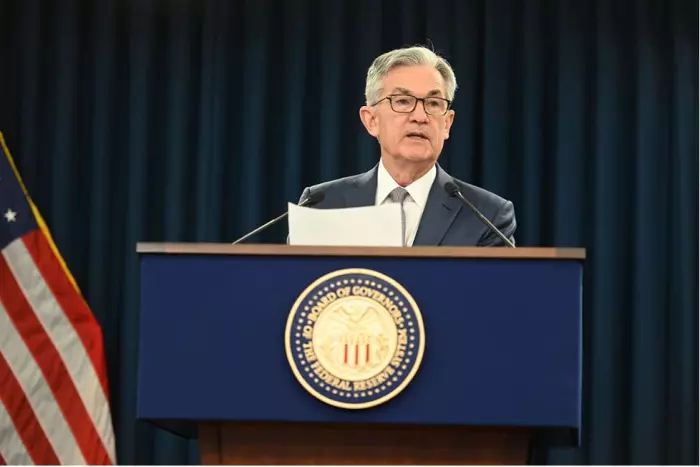Summary: The US Federal Reserve has just signalled it will start hiking the world’s most important interest rate in March, as markets had expected. Elsewhere, there’s modelling that omicron could peak here at 80,000 cases a day, and heavy criticism of the Ministry of Health’s ‘consolidation’ of private companies’ orders of rapid antigen tests.
Rate hikes coming The US Federal Reserve’s Federal Open Markets Committee has just released its latest monetary policy decision, leaving the federal funds rate on hold at 0-0.25% and indicating liftoff for the rate within a couple of months. The FOMC said inflation was above its 2% target and labour markets were tight, which meant the Fed “expects it will soon be appropriate to raise the target range for the federal funds rate”. Markets interpreted that to mean a 25 basis point rate hike in March, as previously expected. Stocks had been modestly firmer before the decision and didn’t move much by 8.20 am NZT.
Loonie loses its tune The Bank of Canada surprised investors who had expected a first rate hike post-covid by leaving its cash rate unchanged at 0.25% overnight and signalling its first hike on March 2 instead, saying it wanted to see how Canada’s current omicron surge played out. The Canadian dollar, known as the ‘loonie’, fell.
Latest covid news Ministry of Health director general Ashley Bloomfield has confirmed a new variant of omicron, BA.2, is circulating in New Zealand already (Stuff) and that covid case numbers could rise to 1,000 a day within two weeks (RNZ). There’s also reports of a super-spreader event near Hamilton over the weekend and an overseas modeller thinks our omicron surge could peak at 80,000 cases a day. (RNZ) Meanwhile, Israel’s health ministry recommended a fourth covid booster shot within five months of the third jab, the Times of Israel reported.
‘You took our RATs’ The Food and Grocery Council, Business NZ and Health Works Group criticised the Ministry of Health’s decision to ‘consolidate’ private firms’ RATs orders into government hands as unfair and shredding their own plans to test workers in factories and at home (BusinessDesk, RNZ);
Breakup delay? Omicron disruptions may force the Commerce Commission to delay its final report recommending some sort of breakup of the supermarkets duopoly of Foodstuffs (Pak’n’Save, New World and Four Square) and Woolworths (Countdown), Stuff reports, despite over 100 complaints to Consumer NZ about supermarket price gouging since the onset of covid (Stuff).
Transport funding blockages Auckland council has not spent $285m of the $515m it has collected from its 11.5c/litre regional fuel tax, the NZ Herald reports, while Stuff reports transport minister Michael Wood is refusing to fund Auckland Transport's $50m deficit due to covid.
Faster than wage growth Trade Me reported the median rent advertised in December was $560 per week, which was up $40 a week or 7.6% from a year ago.
‘It’s too volatile’ The IMF urged El Salvador overnight to give up on using bitcoin as its official currency after the crypto-currency’s more-than-50% slump from record highs in recent months (BBC);
Warehousing imports The United States trade deficit rose over US$100b in any one month for the first time ever as warehouses kept importing to build up stocks to get ahead of supply-chain problems (CNBC);
No carpe diem Facebook has put its crypto currency project once known as ‘Diem’ up for sale after regulators stymied its progress (CNBC).
Fresh on BusinessDesk this morning
Oliver Lewis reports some tobacco companies may end up exiting the New Zealand market when new regulations take effect.
Jenny Ruth reports Forsyth Barr is downgrading its earnings expectations for aged care firms by about 20% because it expects falling house prices and omicron to drag on sales.
Michael Andrew reports the ERA isn’t allowing unvaccinated workers to attend investigation meetings, raising concerns about access to justice.






